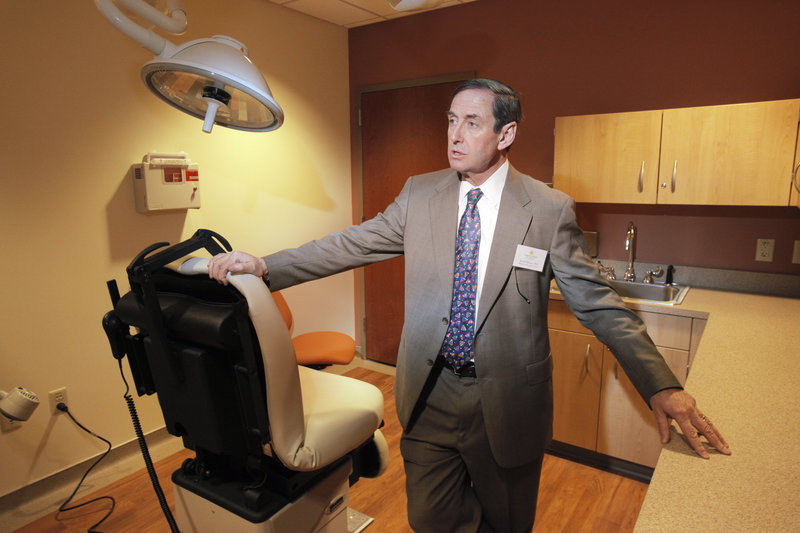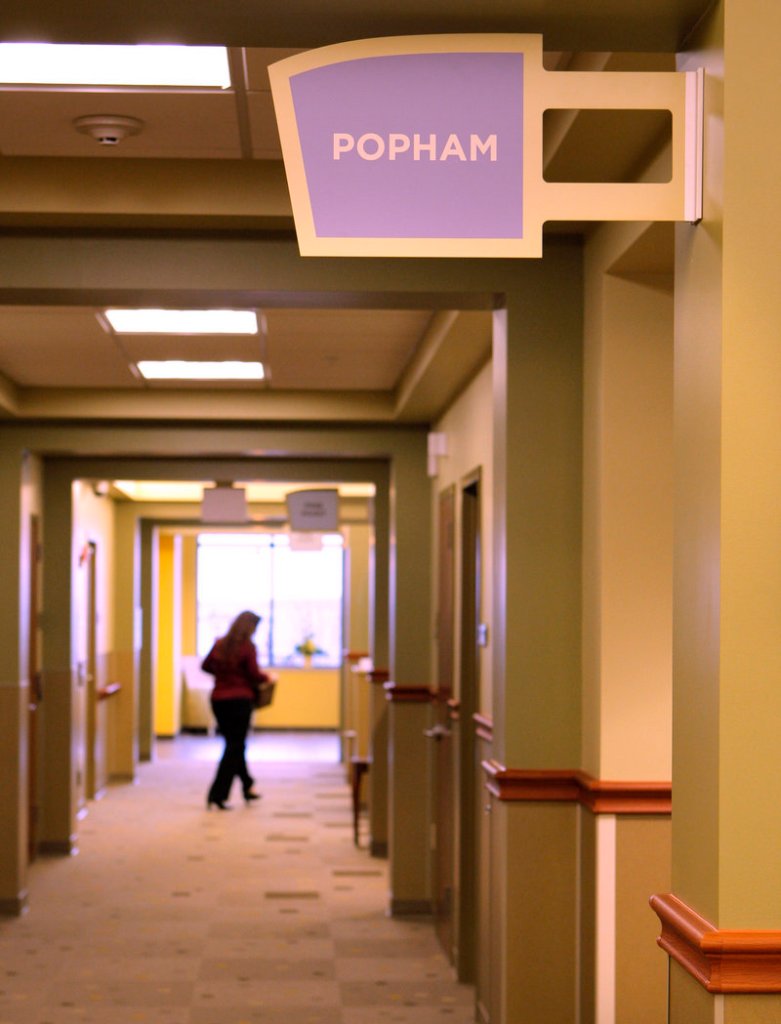PORTLAND – Martin’s Point Health Care is about to move into a new home, a $17 million medical center built at the top of its campus overlooking Casco Bay.
Dr. David Howes, its president and CEO, said the new building is part of a bigger move toward a new system of caring for patients.
The new center is designed to better coordinate care for each patient, a goal that Howes believes will reduce illnesses and hospital visits and, ultimately, reduce the cost of health care.
Each patient will be monitored by a population care nurse in addition to their physician, for example, and will have in-house access to mental health counselors and other specialists.
“Care has become enormously complicated,” Howes said. “There needs to be someone in the system that knows where the patient has been, what medications the patient is taking, what their needs are.”
Martin’s Point held a reception Thursday to show its new primary care center, which officially will open Nov. 15. The not-for-profit primary care network serves about 35,000 patients at its Portland campus.
The 42,000-square-foot building is broken into five pods, each named after a Maine beach. Patients assigned to Crescent or Pemaquid, for example, will go to the same reception desk and waiting room each time they visit.
Each pod will be staffed by a team of physicians, nurses and physician assistants. The population care nurse for the pod will help the doctors and specialists keep track of patients who need follow-up visits or help patients get help managing illnesses such as diabetes.
In addition to the standard exam rooms, the new center has rooms for day surgery, physical therapy and radiology, so specialists can come to the patients. It also has a pharmacy, a patient education room and a lab.
The integration will help physicians and specialists work together, talk to each other and keep better track of the patients, Howes said.
Howes’ vision is what’s known in the industry as a patient-centered medical home.
Primary care offices around the state are trying to adopt similar practices; Martin’s Point is among the first to build an entire center around the idea, said Lisa Letourneau, executive director of Maine Quality Counts, a leader of the movement.
“The whole concept of a patient-centered medical home is still pretty new,” she said.
Designing medical centers to encourage better coordination is one part of the trend. Changing the way patients and insurance companies pay for primary health care is another.
Ultimately, Letourneau said, physicians and nurses should be paid for keeping patients healthy rather than for tests and procedures, which may or may not be necessary. That way, doctors would be rewarded and not penalized for spending more time on exams and education that ultimately keeps patients out of hospitals.
“working with patients one on one with that additional time and attention,” Letourneau said, “you’re less likely to have a complication.”‘
Howes said Martin’s Point is working on financial reforms, too, and is negotiating with insurers to be paid based on how it performs and manages costs. He says the new building, and the coordination of care, will reduce costs to patients and insurers in the long run.
“We believe, by providing really excellent primary care, we save a lot of money down the road,” he said. “If the space is better laid out and organized, it facilitates doing things right as opposed to being an impediment to doing things right.”
Staff Writer John Richardson can be contacted at 791-6324 or at:
jrichardson@pressherald.com
Send questions/comments to the editors.



